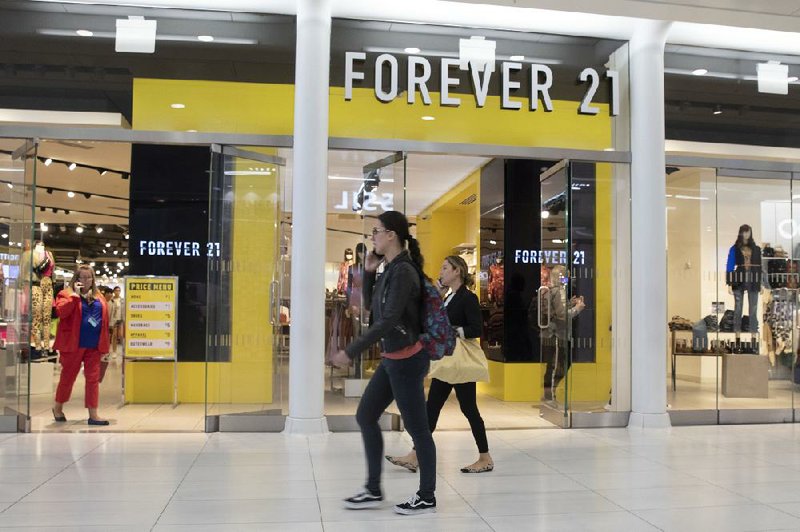A consortium of prospective buyers, including mall owners Simon Property Group and Brookfield Property Partners, is bidding $81 million for Forever 21, according to documents filed Sunday in federal bankruptcy court.
Simon and Brookfield are the biggest landlords for Forever 21, the ubiquitous mall staple that filed for bankruptcy protection in September. The other bidder is Authentic Brands Group, which has acquired the licensing rights to other troubled retailers like Barneys New York.
In 2016, Simon and mall owner General Growth Properties, which is now owned by Brookfield Property Partners, teamed up to save struggling teen apparel retailer Aeropostale, which was in bankruptcy. Simon's Chairman and Chief Executive Officer David Simon told investors during an earnings call last year that Simon was looking at other potential bankrupt retailers.
Mark Hunter, managing director leading Coldwell Banker Richard Ellis's mall management and leasing business in the Americas, says Simon and others are trying to keep occupancy high at their malls. They don't want to trigger a clause that lets other retailers at the shopping center ask for a lower rent or eventually get out of a lease. Still, Simon and others remain "strategic" regarding which retailer to buy.
Forever 21, based in Los Angeles, is a privately held company founded by the Chang family. It joined a rapidly growing list of retailers that have fallen victim to changing shopping behaviors and preferences among teenagers who have increasingly turned away from malls in favor of online brands, or thrift stores.
Forever 21's bankruptcy marked a dramatic fall for the retailer. The company was founded in 1984 and, along with other fast-fashion chains like H&M and Zara, rode a wave of popularity among young shoppers that took off in the mid-1990s. It had the market heft to win over customers from traditional stalwarts like Abercrombie & Fitch and American Eagle.
Its popularity grew during the recession, when shoppers sought fashion bargains. But Forever 21 went on an aggressive expansion of stores just as shoppers were moving online. It has since closed hundreds of stores globally. As of the bankruptcy filing, it operated about 800 stores worldwide, including more than 500 stores in the U.S. The company said at the time of the filing that it would still operate its e-commerce business, which accounts for 16% of total sales.
Other interested parties have until Friday to provide a higher offer. If a higher bid is accepted, there's a breakup fee of $4.6 million.
The approval for the sale will face a judge on Feb. 11.
Bloomberg previously reported that Authentic Brands and Simon Property were mulling a plan to acquire the retail chain. Forever 21 was talking about selling a stake to Simon and its other largest landlord, Brookfield Property Partners LP, before it filed for bankruptcy in September, Bloomberg reported in September. Negotiations broke down, and the company had to seek court protection without a reorganization plan in place.
The chain has since struggled to raise money to exit bankruptcy, with potential lenders and buyers balking because of poor sales and the Chang family's insistence on maintaining control. Forever 21 recently told suppliers in a letter reviewed by Bloomberg that it's short on cash and that it could be forced to liquidate if a buyer doesn't emerge.
As part of the stalking-horse bid, the potential buyers deposited almost $13.5 million in connection with the sale, and any competing bids would have to deposit 10% of the cash purchase price up front, according to court filings.
Information for this article was contributed by Michelle Chapman and of The Associated Press and by Eliza Ronalds-Hannon and Jeremy Hill of Bloomberg News.
Business on 02/04/2020
